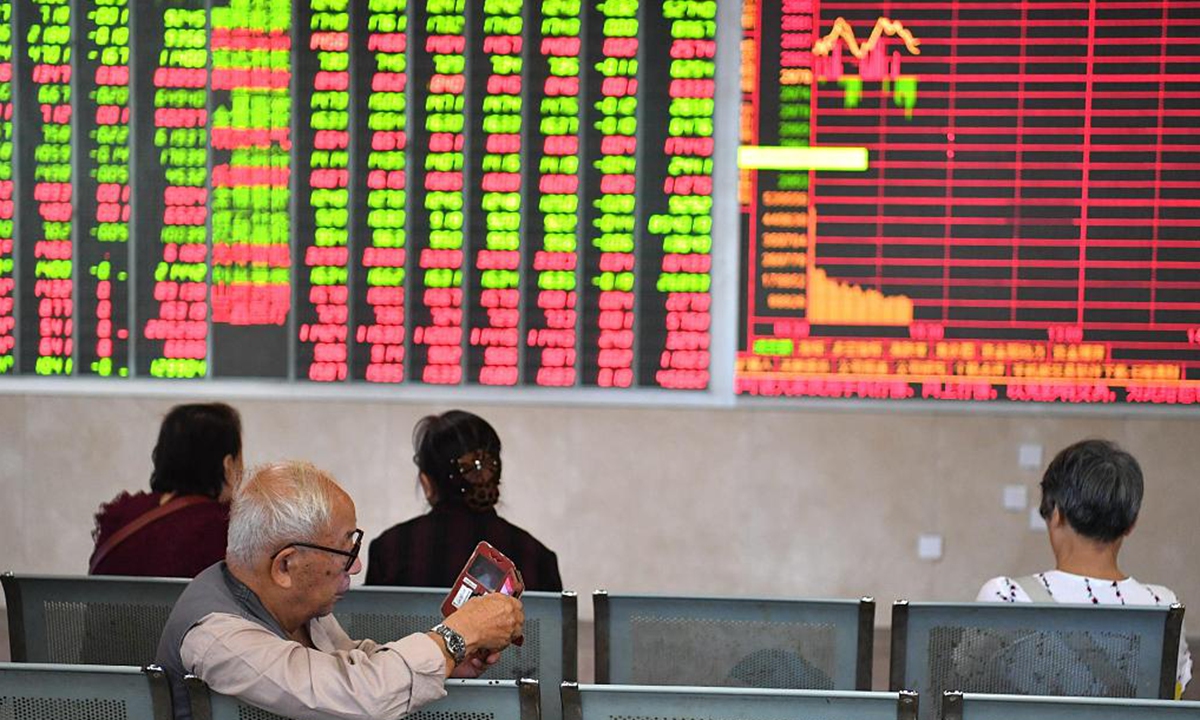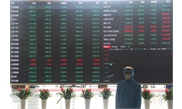
Investors monitor stocks at a trading center in Chengdu, Southwest China's Sichuan Province. Photo: VCG
The number of stock accounts in China's A-share market has exceeded the 200 million mark for the first time, indicating the growing attractiveness and influence of the nation's capital market, as well as the yuan's appreciation, experts said.
The number of investors has been continuously increasing in recent years and exceeded the 200 million mark as of Friday, figures from the China Securities Depository and Clearing Corp (CSDC) showed.
The number broke through 100 million in January 2016 and 150 million in March 2019.
China's securities market attracted more than 19.63 million new investors in 2021, up 8.9 percent from the previous year, the largest gain since 2016, according to the CSDC.
"The active participation of investors in China's A-share market is primarily due to the country's robust economic growth these past few years, while reining in the COVID-19 pandemic effectively," Dong Shaopeng, a senior research fellow at the Chongyang Institute for Financial Studies at Renmin University of China, told the Global Times.
China's GDP expanded 8.1 percent in 2021, the fastest pace in nearly a decade and well above the government's annual target of above 6 percent, though the pace slowed significantly in the last quarter. It was also in a leading position among the world's major economies.
Chinese authorities have underscored the "triple pressure" - shrinking demand, supply shocks and weakening expectations - and prioritized stability in the nation's economic work for 2022 in a tone-setting economic meeting.
The profitability of listed companies has improved in recent years, which also prompted more Chinese investors to enter the market, according to Dong.
In addition, with the opening up of the A-share market and its continued expansion, more overseas investors have shown ever-increasing interest in the market.
Net inflows of funds through the "northbound connect system," or money invested from Hong Kong into the Chinese mainland through the stock connect programs, hit 432.2 billion yuan ($68.42 billion) in 2021, indicating the bullish sentiment of overseas investors toward Chinese equities.
Younger generations - those who were born in the 1980s and 1990s - have become important stock investors as these well-educated participants tend to know more about financial management compared with their parents. They are also less risk-averse, experts noted.
With the development and expansion of China's capital market, the nation's securities regulator is paying more attention to the construction of the investment side to promote the balanced and coordinated development of investment and financing, while meeting the financing needs of the real economy.
Despite geopolitical disturbances, Dong said that people who seek to profit from fluctuations are still willing to open new accounts.
Chinese stock indexes rose on Friday as buying by foreign investors boosted healthcare, new-energy and consumer staples firms, after a broad sell-off on Thursday. A growing number of Chinese firms with businesses in Ukraine or Russia have said the initial impact from the region's crisis is limited.


